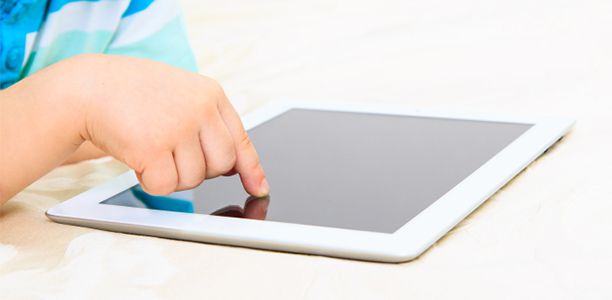Concerns that tablet computers may harm children’s development appear to be unfounded, early research by Swinburne scientists suggests.
Children began to play with tablet computers as soon as they came out in 2010, immediately generating fears that the technology might harm their development.
“Some people think touchscreen computers are ushering in a new age of learning; others believe they’re ruining childhood, but there hasn’t been much evidence either way,” says Dr Jordy Kaufman, of Swinburne’s Babylab, one of the first Australian research facilities specialising in child cognitive brain research and social development.
Although excessive television viewing is known to have an adverse effect on children’s cognitive development, those conclusions cannot necessarily be applied to touchscreens, which are interactive.
Kaufman has investigated how children learn from new media, measuring attentiveness, impulsivity and learning with children aged two to seven. The attention spans and problem-solving abilities of children using touchscreens were compared with children using traditional toys.
“We give them creative activities such as drawing and block building,” Kaufman says. “So far, there’s been no difference between touchscreen and real-world activities when it comes to slow-paced creative activities. We’re not finding any difference in their skills whether they are using a tablet or a toy.
If you are careful with the applications you choose, we haven’t found any negative effects on attention span.”
Kaufman says the key consistent message in his findings is that it’s the activity that matters rather than the medium.
(Source: Swinburne University of Technology)










